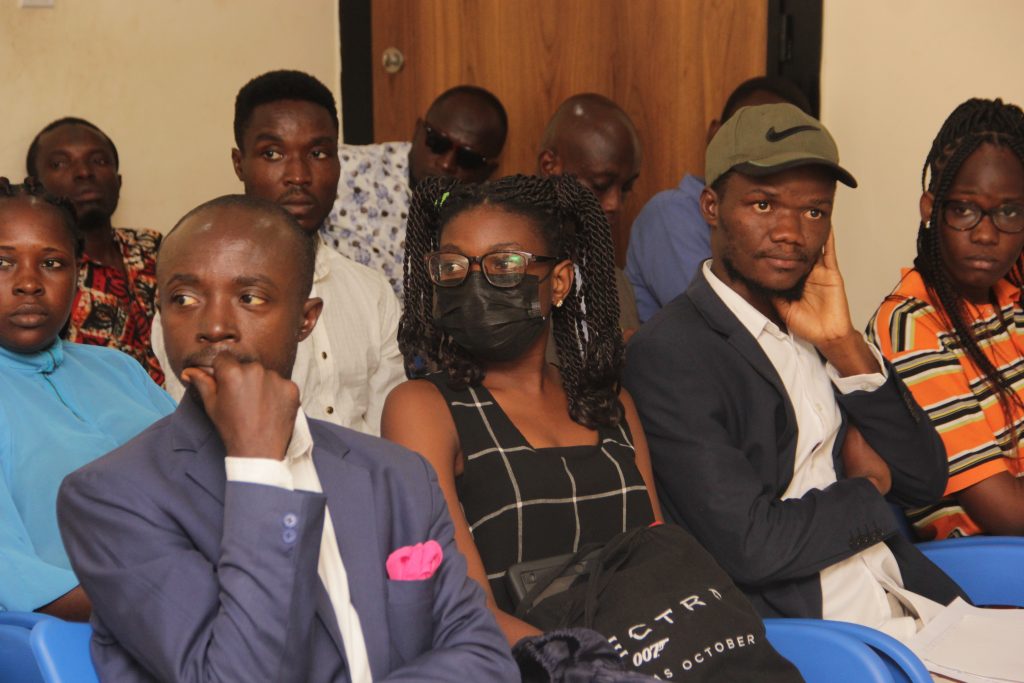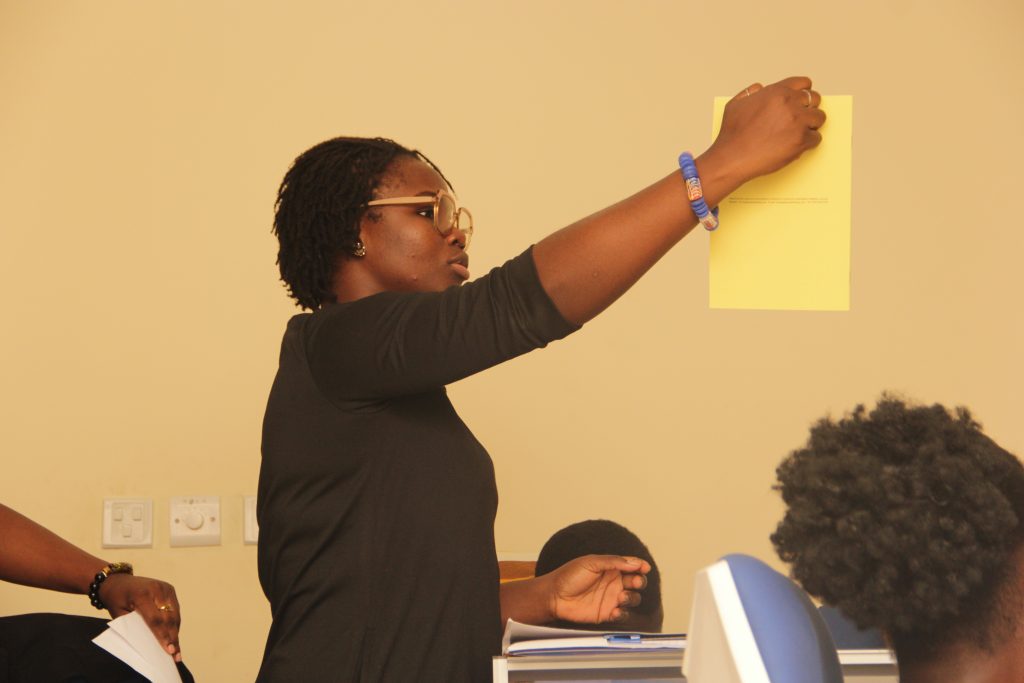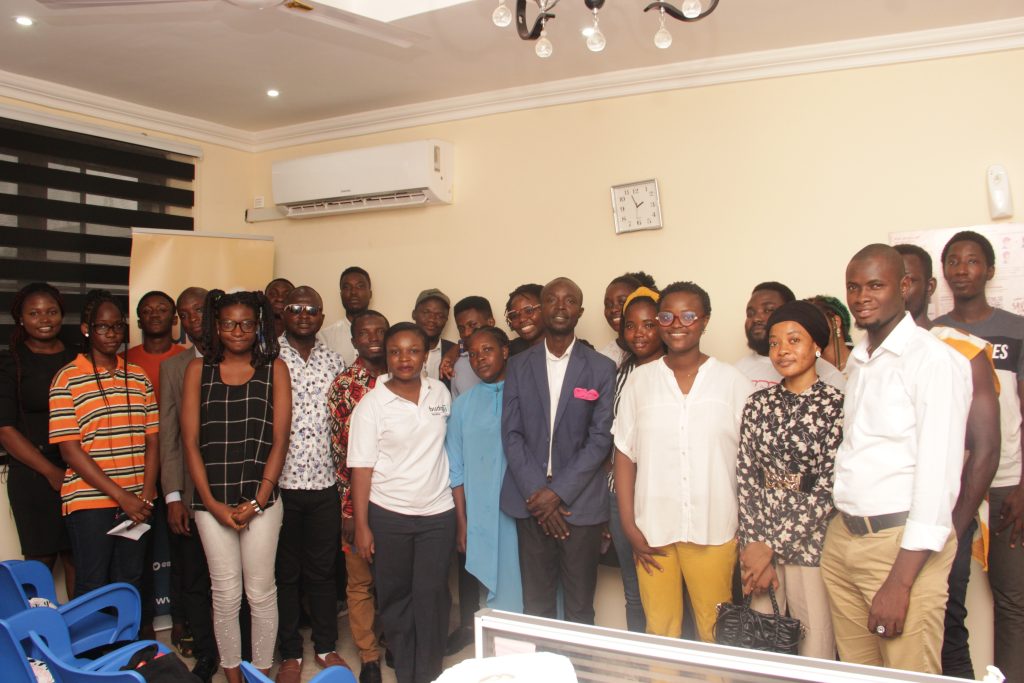In an era defined by a burgeoning civic consciousness and a call for transparent and accountable governance, the pivotal role of civic education in cultivating a responsible and well-informed citizenry must be emphasized. Positioned as a beacon of democracy in West Africa, Ghana has consistently made commendable progress.
On October 17, 2023, BudgIT Ghana, a civic-tech organization, orchestrated a Civic Education Meeting in Accra centred around the theme “Understanding the Rights and Responsibilities of a Ghanaian Citizen in Public Finance.” The meeting was a significant endeavour to enlighten and empower citizens about their indispensable role in shaping the nation’s financial landscape.
The event commenced with a brief introduction by BudgIT Ghana’s Program Officer, Nancy Adzo Akpene Avevor. Her opening remarks set the tone for a profound exploration of the rights and responsibilities of Ghanaian citizens in public finance.

Following this, Kamal-Deen Hadrat Yussif, Finance and Administrative Officer at BudgIT Ghana delivered introductory remarks on the theme. He emphasized the crucial role of financial literacy in empowering citizens to engage actively in the public finance domain. Yussif’s address emphasized the core objective of the meeting: to impart knowledge and awareness about the financial mechanisms underpinning Ghana’s governance.
The event’s highlight was a 25-minute presentation by Evelyn Olukeye, Monitoring & Evaluations Officer at BudgIT Ghana. Her presentation eloquently delved into the theme, elucidating the intricate relationship between the rights and responsibilities of a Ghanaian citizen in public finance. She meticulously detailed how citizens can influence public finance, ranging from budget reviews to active participation in public consultations. This segment provided valuable insights and equipped attendees with practical tools for meaningful engagement.

A 35-minute general discussion on the theme opened the floor for participants to ask questions and share their thoughts. It was a very interactive and constructive engagement that highlighted the significance of open dialogue in civic education, culminating in a 50-minute question-and-answer session and open forum where all participants actively contributed, showcasing their curiosity and eagerness to understand how they can exercise their rights and fulfil their responsibilities as Ghanaian citizens in public finance.
In her closing remark, Jennifer Moffatt, Head of Programs at BudgIT Ghana, conveyed a sense of optimism for the future. She emphasized the imperative nature of civic education initiatives, highlighting their pivotal role in fostering an informed, participatory, and accountable citizenry. Moffatt’s emphasis on the significance of civic education resonated as a call to action, affirming the belief that an educated and engaged citizenry is foundational to the nation’s progress and democratic well-being.

The Broader Relevance of BudgIT Ghana’s Civic Education Meeting
The Civic Education Meeting was not an isolated event but a microcosm of Ghana’s larger civic education landscape. Civic education plays a pivotal role in the country’s democratic growth, and this meeting serves as a beacon of the nation’s commitment to fostering an informed citizenry that actively participates in governance.
The implications of this civic education initiative are far-reaching. It empowers citizens with the knowledge to hold government officials accountable for their financial decisions. Informed citizens are better equipped to scrutinise budgets, engage in policy discussions, and participate in public consultations, ensuring that the government’s financial decisions align with the nation’s best interests. Furthermore, this meeting aligns with the principles of transparency and accountability, fundamental elements of a healthy democracy. By understanding their financial rights and responsibilities, Ghanaian citizens become active partners in the government’s efforts to promote transparency in public funds.

In conclusion, the meeting marks a significant step in pursuing a more informed, engaged, and participatory citizenry in Ghana. It embodies the principles of civic education’s vital role in democracy and underlines the government’s commitment to fostering transparency, accountability, and good governance. The event serves as a reminder that, in Ghana, the journey toward an empowered citizenry is an ongoing and dynamic process that holds the promise of a brighter future for the nation.
